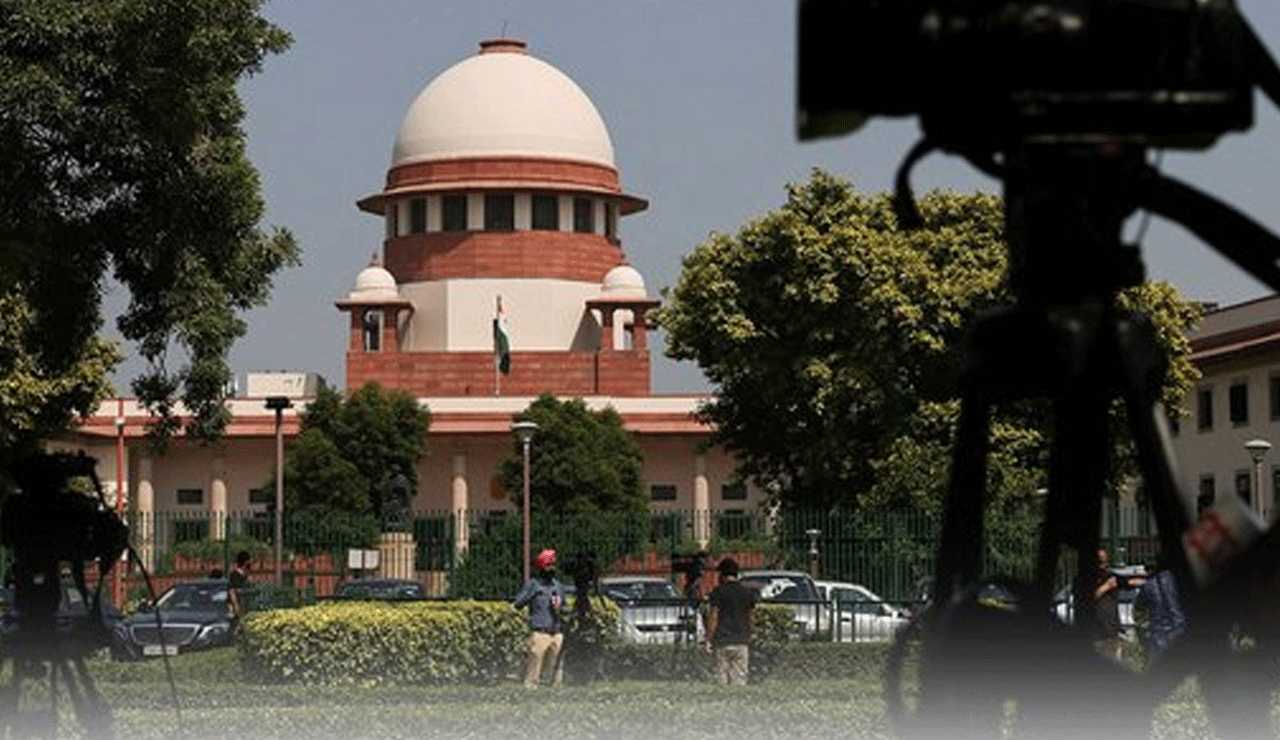Supreme Court seeks Centre’s stand on pleas seeking restoration of J&K statehood
The Supreme Court on Thursday sought the Union government’s stand on a batch of applications demanding the time-bound restoration of statehood to Jammu and Kashmir.

New Delhi: The Supreme Court on Thursday sought the Union government’s stand on a batch of applications demanding the time-bound restoration of statehood to Jammu and Kashmir.
A Bench of CJI B.R. Gavai and K. Vinod Chandran was hearing pleas contending that the continued delay in restoring statehood is “gravely affecting the rights of the citizens of Jammu and Kashmir and also violating the idea of federalism”.
The applications argued that the failure to restore statehood within a time-bound framework amounts to a violation of federalism, which forms part of the Basic Structure of the Constitution.
Also Read: HDFC Bank says no raise in average minimum balance for saving accounts
“It has been 21 months since the Article 370 judgment. There has been no movement towards the restoration of statehood,” submitted senior advocate Gopal Sankaranarayanan, adding that the Constitution Bench had trusted the Union government when the Solicitor General assured it that statehood would be restored.
On the other hand, Solicitor General (SG) Tushar Mehta, questioning the maintainability of the applications, urged the apex court to consider the “peculiar position” in Jammu and Kashmir and sought that the pleas be listed after eight weeks, saying this was not the “correct stage” to consider the matter.
“The MAs (miscellaneous applications) are not maintainable. We had assured two things: the election would be held, and thereafter, the statehood. Your lordships are aware of the peculiar position emerging from this part of our country. There are several considerations,” said SG Mehta.
“I don’t know why, at this stage, this issue is agitated, but list it after 8 weeks. I will take instructions. My prayer is for eight weeks because this particular stage is not the correct stage to muddy the water,” Mehta added.
After hearing the submissions, the CJI Gavai-led Bench listed the matter after eight weeks.
In ‘re: Article 370 of the Constitution’ verdict, a 5-judge Constitution Bench, headed by then CJI D.Y. Chandrachud, had left open the question of whether the Parliament can extinguish the character of statehood by converting a state into one or more Union Territories, relying on an oral statement made on Centre’s behalf that statehood would be restored to Jammu and Kashmir. In the course of the oral hearing, the Solicitor General, the second-highest law officer of the Centre, had submitted that the Union Home Ministry cannot give any exact timeframe and it would take “some time” for the restoration of statehood in Jammu and Kashmir.
However, the Constitution Bench, also comprising Justices S.K. Kaul, Sanjiv Khanna, Gavai and Surya Kant, had ordered the Election Commission of India (ECI) to take steps to conduct elections to the Legislative Assembly of Jammu and Kashmir, constituted under Section 14 of the Reorganisation Act, by September 30, 2024, and said that “restoration of statehood shall take place at the earliest and as soon as possible”.
It had upheld the status of Ladakh as a Union Territory under Article 3(a) read with Explanation I of the Constitution, which permits the formation of a Union Territory by separating a territory from any state. In May 2024, the Supreme Court dismissed review petitions challenging its verdict, stating there was “no error apparent on the face of the record” and refused to list the matter in open court.
